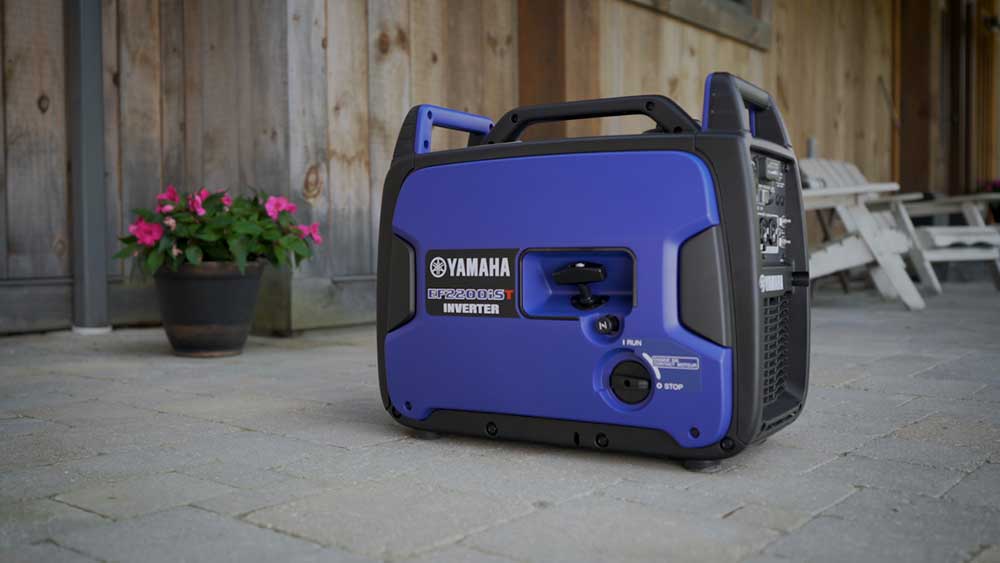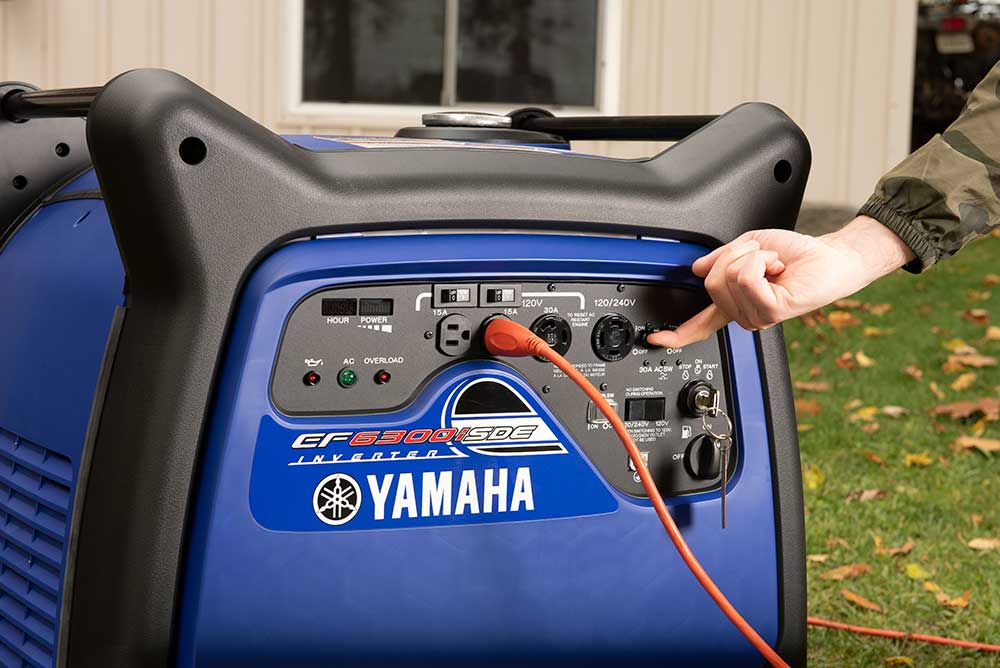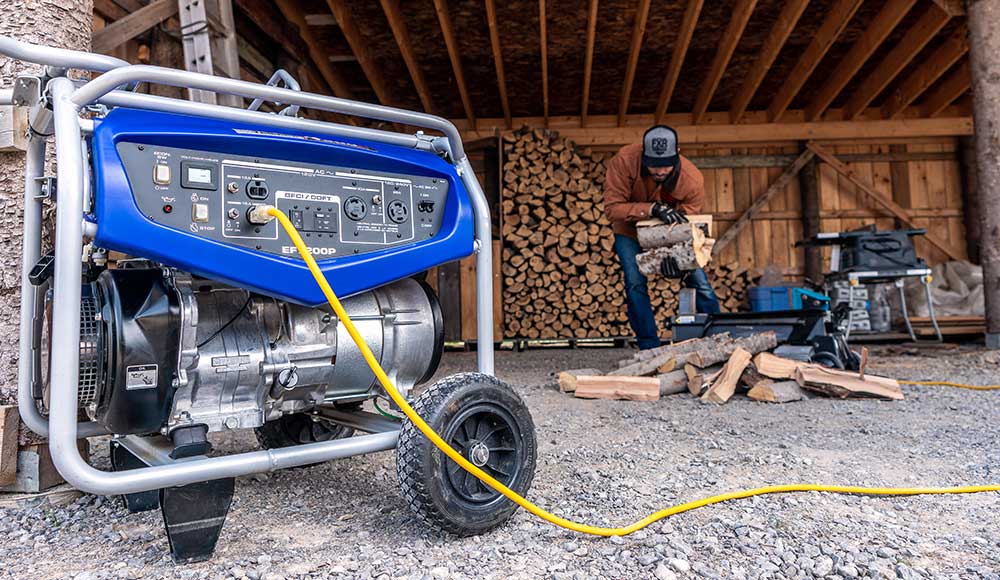With today’s weather becoming more unpredictable, homeowners are turning to generators more than ever as a source of emergency backup power. The growing trends of tiny homes and off-grid living have also fueled the recent surge in this category, but truthfully, generators have been around for decades and offer countless uses at home, the cottage or the job site.
When purchasing a generator, it’s crucial to choose one that’s capable of meeting your power requirements and situation, be it residential or industrial. Come along as we guide you through the process to make an informed purchase that you’ll be satisfied with for years to come.
INVERTER GENERATORS VS. CONVENTIONAL GENERATORS
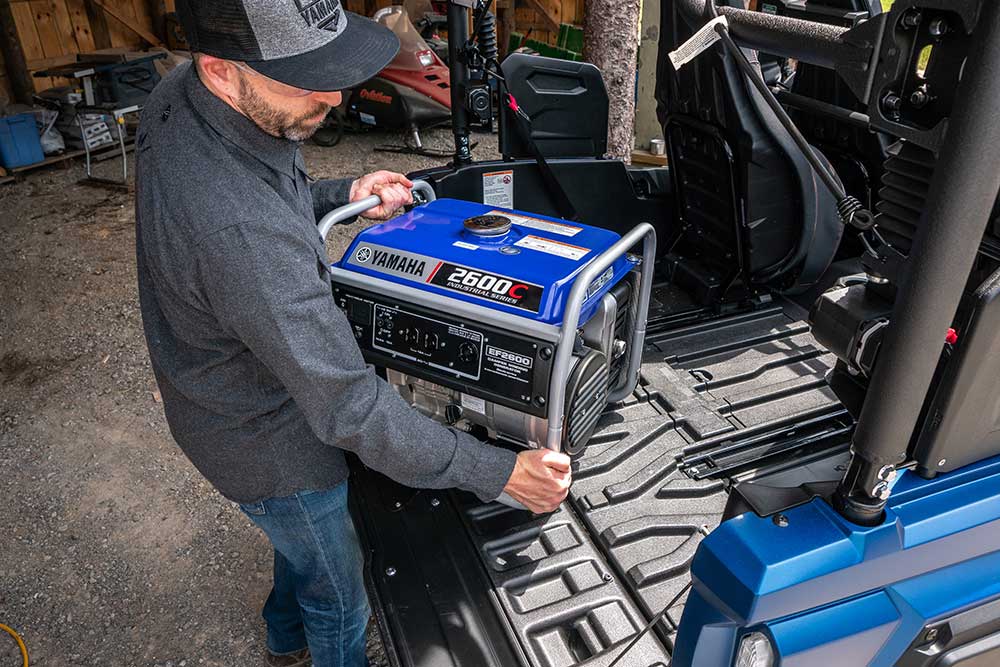
When shopping for a new generator, one of the first things you’ll discover is that there are two basic types to choose from: premium generators (also known as conventional or open-framed) and inverter generators. Both run on regular gasoline, but the key difference is that inverter generators use a built-in inverter that electronically “cleans” the power to produce a more stable source. This is an absolute necessity if you’re powering home appliances with microprocessors like a TV, computer, video game system or handheld device. Inverters are also typically lighter, more compact and quieter, though conventional generators tend to be less expensive and more robust.
DETERMINING YOUR POWER NEEDS

You can determine the power requirements of your appliance by reading the identification plate on the product, checking the owner’s manual, using a load tester or contacting the manufacturer (as a reference, the application chart at the bottom of this article provides wattage estimates for conventional appliances, tools and electronic devices). Add up the required watts of all the items you expect to operate at the same time. It is not uncommon for devices to use more or less wattage than what’s listed by the manufacturer, so we recommend you add a 10 percent correction factor to your total power requirements.
Once you’ve identified your wattage requirements, you can start looking at your choices. For example:
-
Sheryl lives in the city and is looking for a basic source of home backup power to keep her family going in case of a sudden power outage. The coffeemaker is a must, the kids need their tablets charged, and a clothes iron and hair dryer would be nice, too (but not all at once). After adding up the wattage of products to be used at the same time (and adding that 10 percent buffer), Sheryl calls her local dealer who recommends the 2,200-watt Yamaha EF2200iST. It’s a quiet, affordable and portable asset to keep the family on schedule—even when the lights go out.
-
Ted and Holly are looking forward to spending weekends at their new off-grid trailer. They need a generator that’s powerful but quiet, so they can still enjoy their peaceful surroundings. Their trailer has a 30-amp electrical system, so their local dealer recommended a Yamaha EF4500iSE inverter generator. It comes with a 30-amp outlet—so it’s basically plug-and-play—and provides 4,000 watts of continuous power to handle the air conditioning, water heater, kitchen appliances, TV and more.
-
Ryan is an independent contractor and a real DIY guy at home. He wants a do-it-all workhorse to use on the job site or throw in the side-by-side for yardwork around the cottage. Enter the Yamaha EF7200P. Just like him, this generator is rugged, with a 357 cc Yamaha four-stroke engine, steel perimeter frame and—like all Yamaha generators—a 3-year warranty*. Since it’s a conventional generator without an inverter, Ryan won’t be plugging his laptop into it, but he can run his power tools, compressor, welder or sump pump day in and day out. The EF7200P also comes with GFCI circuitry to reduce the risk of a shock.
(*1-year warranty on EF1000iS)
Yamaha generators use smart technology to minimize noise, maximize efficiently and increase longevity. With 16 models to choose from, your next generator is as close as your nearest Yamaha dealer!
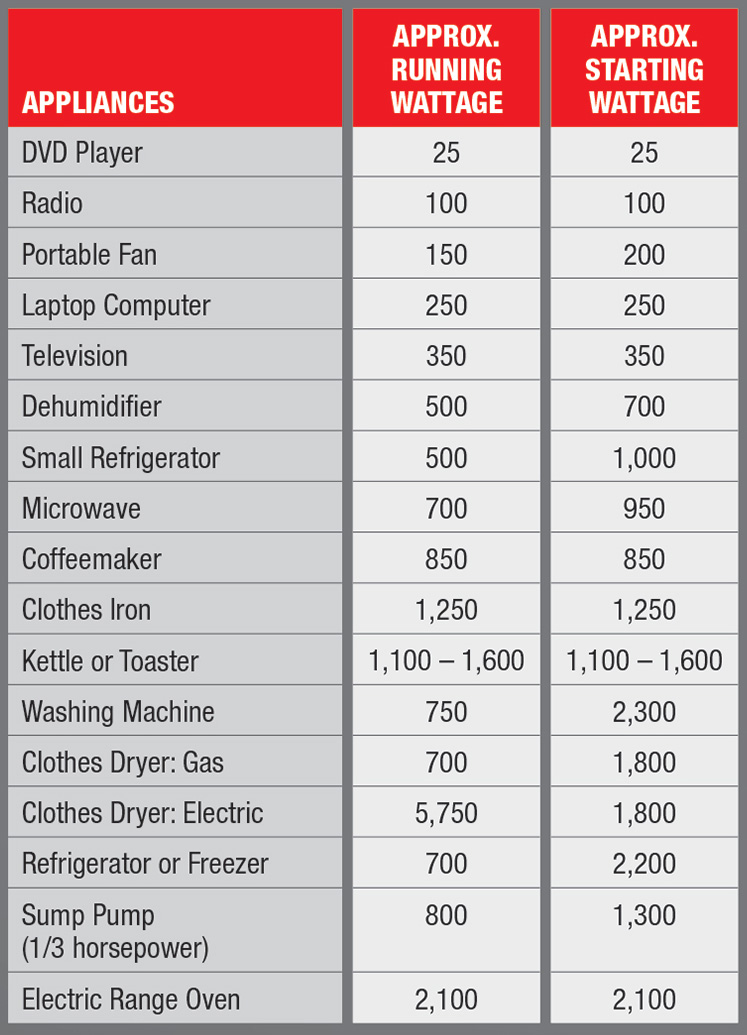
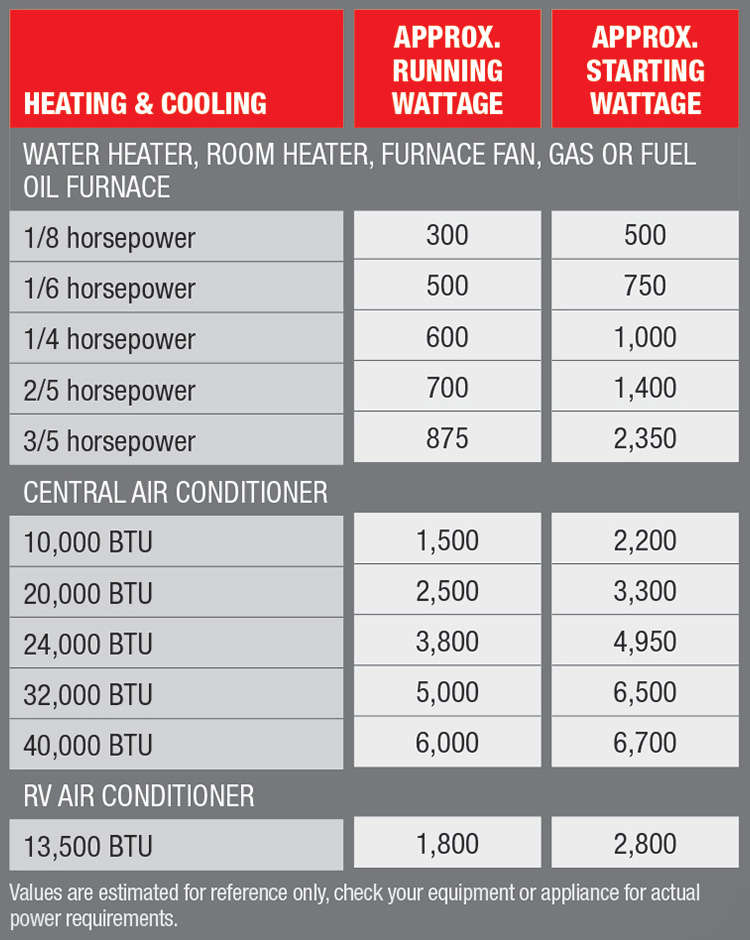
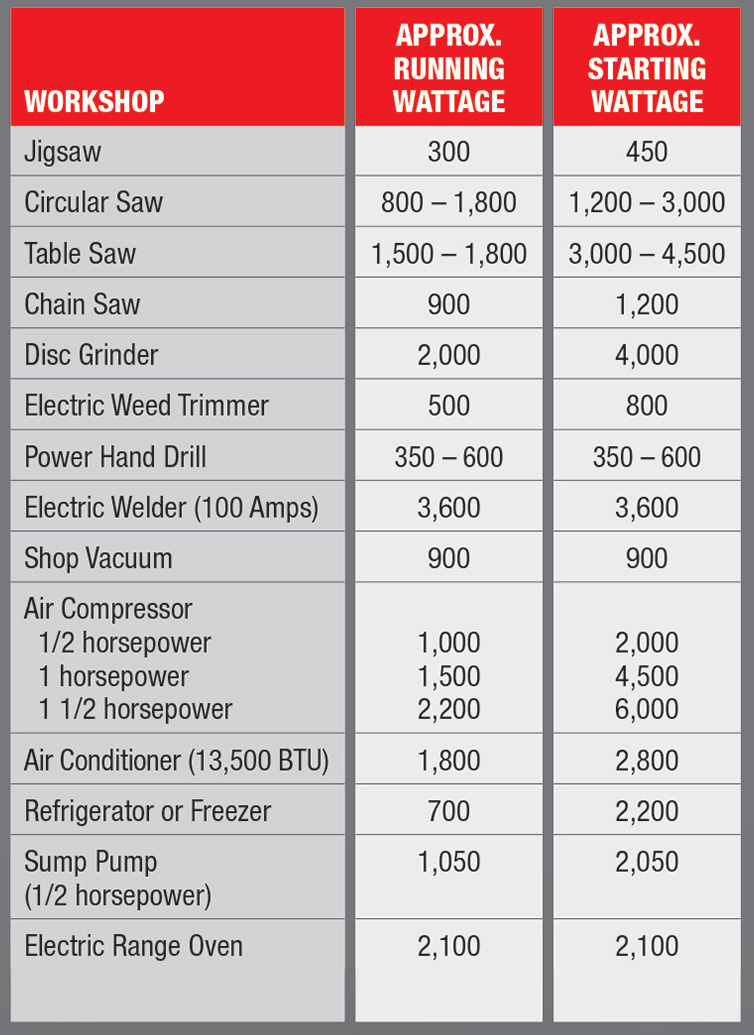
BE SAFE – KEEP IT OUTSIDE!
To keep your family safe from carbon monoxide, the only place to operate a portable generator is outside. Never operate a generator or inverter indoors as they produce odorless and potentially lethal poisonous carbon monoxide gases.


 All Yamaha News
All Yamaha News